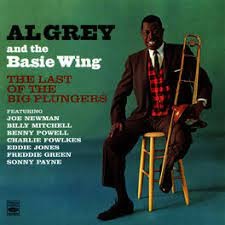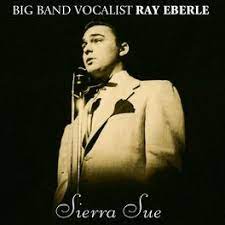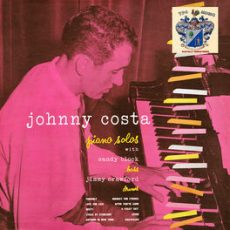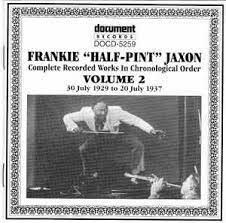
Daily Dose Of Jazz…
Charles Baker Fowlkes was born on February 16, 1916 in New York City and studied alto and tenor saxophone, clarinet, and violin before settling on the baritone saxophone. He spent most of his early career in the city playing with Tiny Bradshaw, Lionel Hampton, and Arnett Cobb.
He joined Basie’s orchestra in 1953 and remained with the orchestra until his death. The main interruptions during Charlie’s time with Basie were absences due to managing the career of his wife, vocalist Wini Brown.
Fowlkes recorded sixty-eight albums with Basie, and another fourteen with Frank Wess, Kenny Clarke, Buck Clayton, Stanley Cowell, Al Grey, Coleman Hawkins, Milt Jackson, Yusef Lateef, Billy Taylor, and Eddie “Cleanhead” Vinson.
Baritone saxophonist Charlie Fowlkes, who occasionally played flute, electric guitar, bass clarinet and vocals, died in Dallas, Texas on February 9, 1980.
More Posts: bass clarinet,flute,guitar,history,instrumental,jazz,music,saxophone,vocal

Daily Dose Of Jazz…
Gene Schroeder was born on February 5, 1915 in Madison, Wisconsin to a pianist mother and a father who was a trumpeter. He studied at the Wisconsin School of Music, and when he was 11 he was playing now and then with his father’s band, and doubling on clarinet in his high school orchestra a few years later.
After a year at the University of Wisconsin Music School, Schroeder moved to Milwaukee, Wisconsin. He led his own band and played with local musicians including Wild Bill Davison. His next move was to New York City in 1939 and was briefly with the Wes Westerfield Trio, then headed a combo. Gene went on to spend a year apiece as a member of the groups of Joe Marsala and Marty Marsala.
By the summer of 1942, Schroeder was working again with Wild Bill Davison then beginning in 1943 at Nick’s with Miff Mole. After becoming Eddie Condon’s regular pianist, he played at the opening of the club Condon’s in 12 1945. He was with Condon most of the time from then on up to 1962 appearing on many recordings. During his long association with Condon’s Chicago jazz bands his talent was continually overshadowed, most likely due to his being a subtle player.
He had a three year stint with the Dukes of Dixieland from 1961 to 1964 and then worked in the late ’60s with Tony Parenti. Despite his busy activity, he only led one recording session in his career, four songs cut in 1944 for the Black & White label with a trio.
Pianist Gene Schroeder died at the age of 60 on February 16, 1975 in his hometown of Madison.
More Posts: bandleader,history,instrumental,jazz,music,piano

Daily Dose Of Jazz…
Raymond Eberle was born on January 19, 1919 in Mechanicville, Saratoga County, New York. He started singing in his teens without formal training. In 1938 while looking for a male vocalist for his big band asked Bob Eberly if he had any siblings at home who could sing and his brother was hired on the spot.
Eberle went on to find success with Miller, deeming the songs for the film Orchestra Wives, such as the jazz standard “At Last”, to be among his favorites, as they were songs he could make a story out of. During the Forties he appeared in Twentieth Century Fox movies, and several Universal Studios films, singing mostly ballads.
He led his own orchestra, The Ray Eberle Orchestra, as well as the Serenade In Blue Orchestra from 1943. In the 1950s and 1960s.he also appeared on numerous television variety shows. He maintained his band until his death.
After his departure from Miller, Eberle briefly joined Gene Krupa’s band before launching a solo career. He later joined former Miller bandmate Tex Beneke’s orchestra in 1970 for a national tour, and reformed his own orchestra later in the decade.
Vocalist Ray Eberle died of a heart attack in Douglasville, Georgia on August 25, 1979, aged 60.
More Posts: history,instrumental,jazz,music,vocal

Daily Dose Of Jazz…
Sandy Block was born on January 16, 1917 in Cleveland, Ohio. Growing up in Cleveland and Brooklyn, New York he played violin as a child. He picked up the bass in high school and worked professionally in big bands from the late 1930s.
Block worked with Van Alexander, Chick Webb, Alvino Rey, and Tommy Dorsey. He recorded with Louis Armstrong and Ella Fitzgerald. He played with Charlie Parker on the only television appearance Parker ever made.
After the 1950s Sandy worked extensively as a studio musician, including with folk ensembles such as The Greenbriar Boys. He played with Jimmy McPartland and Johnny Costa, but went into semi-retirement after the 1960s.
Bassist Sandy Block, who was also credited as Sid Block, died on October 1, 1985.
More Posts: bass,history,instrumental,jazz,music

Daily Dose Of Jazz…
David A. Young was born January 14, 1912 in Nashville, Tennessee but was raised in Chicago, Illinois. There he joined a band made up of newsboys from the Chicago Defender.
In the 1930s he worked in the bands of Frankie Half Pint Jaxon, Fletcher Henderson, Carroll Dickerson, and Roy Eldridge. He was with Horace Henderson in 1939-1940.
During World War II worked with Walter Fuller, Lucky Millinder, and Sammy Price. He was drafted into the U.S. Navy in 1944 and played in a military band until the end of the war. After his discharge Dave returned to Chicago and played with Dinah Washington.
The 1950s had Young leaving his career in music and returning to working for the Chicago Defender, this time as an advertising executive.
Tenor saxophonist Dave Young died on December 25, 1992.
More Posts: history,instrumental,jazz,music,saxophone



